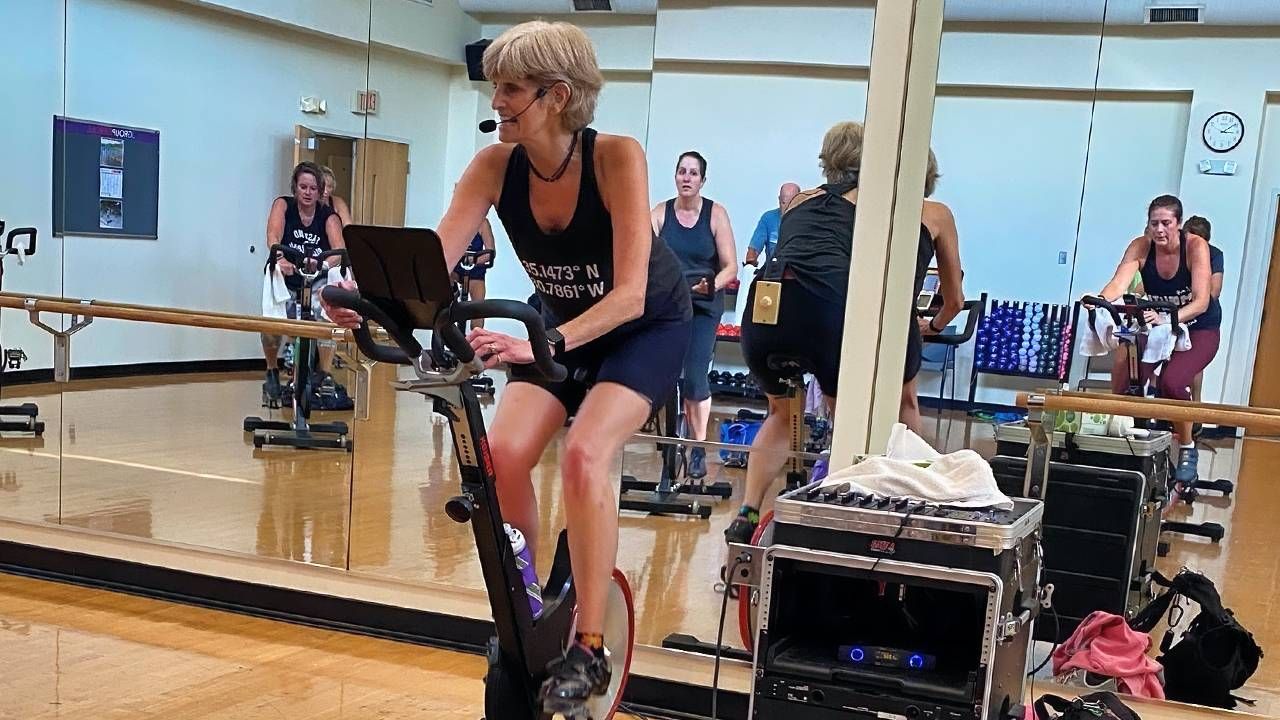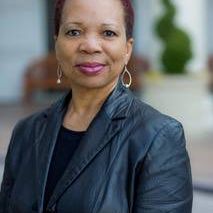Where Are All the Older Fitness Trainers?
The demand for them is great, but here's why older fitness trainers are pretty scarce
When it comes to helping people work out, Shannan Schaffer is in perpetual beast mode. The former flight attendant taught her first indoor cycle class at a YMCA in Charlotte, N.C. 31 years ago. She's still at it.

"Pedaling to nowhere is my calling," says Schaffer, who's in her late 50s, with a robust laugh. "I'm a huge introvert. But once I'm on the bike, I'm a huge extrovert. I get off the bike and dance" to one of the 7,000 songs she's downloaded by artists ranging from Tupac Shakur to Led Zeppelin. "If you have to work out the rest of your life, it should be fun."
"I think there tends to be a stereotype about older professionals" among supervisors and even workout participants.
And oh, what fun it is for instructors like Schaffer and the ever-expanding older clientele at fitness facilities across the country. However, if you're someone 50+ looking for a fitness instructor or personal trainer, chances are that person will be decades younger than you.
'An Abundant Pool of Talented People'
As the International Council on Active Aging notes on its website, "In addition to seeing the aging population as potential new customers, the industry should also view the growth in this demographic as offering an abundant pool of talented people who are receptive to transitioning into a new career."
Schaffer epitomizes the collective of older fitness professionals who've turned a personal avocation — intentional or not — into a career. In mid-2021, she was teaching only four weekly cycle classes, but Schaffer has taught 20 classes per week many times over her long tenure.
"We've aged together," says Schaffer about many of the faithful participants who crowd into her classes (some as old as 80, and mostly women). "To me, cycle is one of the few things that you can do as you age."
In the fitness world, older fitness professionals are the exception, however, not the norm.
Francis Neric, national director of certification at the American College of Sports Medicine (ACSM), says people 50+ make up 17% of its certified professionals. Most people seeking ACSM certification are aspiring (or veteran) personal trainers and group exercise instructors.
To become a fitness instructor or trainer, one of the first things you'll need to do is become certified. Fees and the length of time to earn your certification vary depending on the organization issuing the designation.
How to Become a Fitness Trainer
ACSM is one of several established certification groups that include the American Council on Exercise, the National Academy of Sports Medicine and the National Strength and Conditioning Association.
Typically, their training centers on group exercise and personal training coursework that can take three to nine months to complete. Then, students must pass an in-person or online exam costing $349 to $499. For those who succeed, recertifications must be completed every two to three years (cost: $45 to $129).
Most fitness facilities accept — if not require — certifications granted by one of the organizations. The facilities also require many other types of training, such as CPR, on at least a yearly basis.
Nearly two-year-old StrongerU Senior Fitness calls itself "the first senior fitness instructor certification of our kind globally." Its participants enroll in a $250 course, record themselves leading a pre-choreographed class at home and submit the video for review. Once the video is approved, the applicant is deemed StrongerU Senior Fitness certified and can subscribe to a $15 series of classes that changes monthly.
So, are there viable opportunities in the fitness industry for people in their 50s and 60s?
"The simple answer is yes. I think that finding opportunities is the challenge," says Lauren Korzan, a certified exercise physiologist and group exercise instructor based in Atlanta. She teaches classes at YMCAs and is regional director for a program for a Florida-based health and fitness consultancy.
How much you'll earn if you can secure a job as a fitness instructor or personal trainer depends on your experience, where you live, where you'll teach and what you'll teach.
Perception Vs. Reality
For example, a part-time water aerobics instructor with a decade of experience could earn $14 per class at a facility such as a YMCA. An entry-level, full-time employee with a degree in exercise science and a fitness certification might get paid $30,000 to $35,000 at a corporate facility.
You may need to convince the manager of a fitness facility that you're physically able to run the class, notes Korzan. That's because older instructors are often perceived as incapable of teaching classes that are physically demanding.
Older instructors and trainers in their 50s and beyond, "start to get discarded."
"The trend right now is towards higher-intensity workouts, things that tend to be harder… and I think there tends to be a stereotype about older professionals" among supervisors and even workout participants, Korzan says.
In many cases, she adds, that perception is inaccurate.
But older instructors and trainers in their 50s and beyond, "start to get discarded," says Gay Gasper, a 30-year industry veteran, certified fitness instructor and wellness director at a senior living community in Charlotte, N.C.
Gasper notes that they're often viewed as too old to teach high-intensity activities like athletic conditioning.
The Advantages Older Instructors Offer
"We definitely need (older) personal trainers and (instructors for) what I consider the harder classes," says Schaffer.
What some older instructors and trainers may lack in terms of intensity, they make up for in other ways. "What you're bringing into it (fitness instruction) is the mastery of communication. A lot of young folks don't have that," notes Neric.
Korzan agrees, adding, "I do think that older fitness professionals have more compassion; I think that they listen better."
Not surprisingly, there's also often a bond between older fitness instructors and their older class participants. The older client or class participant believes a peer who's an instructor or trainer is more likely to "know what it feels like to get injured," Neric says.


